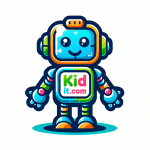Introduction to Coding for Kids- Essential Concepts to Master
In today's digital age, coding has become an essential skill for children to learn. Not only does coding teach critical thinking and problem-solving skills, but it also opens up a world of opportunities in the tech industry. At [Company Name], we offer tech education, IT education, and resources for children to help them master the essential concepts of coding.
Why Teach Coding to Kids?
Teaching coding to kids at a young age can have numerous benefits. It helps them develop computational thinking skills, which are essential for problem-solving in various areas of life. Coding also encourages creativity and allows kids to express their ideas in a new and interactive way. Additionally, learning to code can boost children's confidence and self-esteem, as they see their ideas come to life through programming.
Essential Concepts to Master
While coding may seem like a complex skill, breaking it down into essential concepts can make it more manageable for kids to learn. Some of the key concepts that children should master when learning to code include:
1. Sequencing: Sequencing is the order in which instructions are carried out. Kids need to understand that code is executed line by line, and the sequence of instructions can change the outcome of a program.
2. Loops: Loops are used to repeat a set of instructions multiple times. Teaching kids how to use loops can help them write more efficient code and avoid repetition.
3. Conditional Statements: Conditional statements are used to make decisions in code. Kids should learn how to use if-else statements to create programs that can respond to different situations.
4. Variables: Variables are placeholders for data in code. Teaching kids how to use variables can help them store and manipulate information in their programs.
5. Functions: Functions are reusable blocks of code that perform a specific task. Kids should learn how to define and call functions to make their code more modular and easier to manage.
Hands-On Learning
At [Company Name], we believe that hands-on learning is the best way for kids to master coding concepts. Our tech education programs include interactive coding projects that allow children to apply their knowledge in real-world scenarios. By working on fun and engaging coding challenges, kids can see the direct impact of their code and develop a deeper understanding of programming principles.
Resources for Kids
In addition to our tech education programs, we also offer a variety of resources for kids to continue learning to code at home. Our online tutorials and coding games provide children with opportunities to practice their coding skills in a fun and interactive way. We also encourage kids to explore coding communities and forums where they can collaborate with other young coders and share their projects.
Conclusion
Teaching coding to kids is not just about preparing them for a future career in technology. It's about providing them with the tools and skills they need to thrive in a digital world. By mastering essential coding concepts and engaging in hands-on learning, children can develop critical thinking, problem-solving, and creativity skills that will benefit them for years to come.
At [Company Name], we are committed to empowering children with tech education and IT education to help them succeed in the ever-evolving tech industry. Start your child's coding journey today and watch them become a confident and skilled coder!


leave a comment